The ���˿��� and CDM - a proportionate approach
The ���˿��� recognises that CDM can apply to many of its activities from large events such as Proms in the Park to the smallest of construction related tasks e.g. changing a door handle on the set of Doctors. Both these activities carry an element of construction risk, however the level of risk presented is vastly different. Given these two extremes, it is not realistic to adopt a 'one size fits all' approach. Neither is it possible to provide specific guidance for every scenario across the ���˿���.
The ���˿��� approach is to broadly classify its CDM related activity into three categories; Large Construction Related Projects, Medium Construction Related Projects, & Small Construction Related Tasks. Each of these categories will carry a certain level of construction ‘risk’, the level of CDM planning and management required by the ���˿��� should be in proportion to the level of risk identified.
To assist those planning activities where CDM may apply, the ���˿��� has looked at 9 projects /productions (A-I on the diagram) and has made suggestions on how the requirements of CDM could be managed for those projects. This is based on our 'Wedge of Effort' model, which in basic terms shows that the greater the level of risk a project / production carries, the greater the 'effort' required in terms of planning and resource allocation.
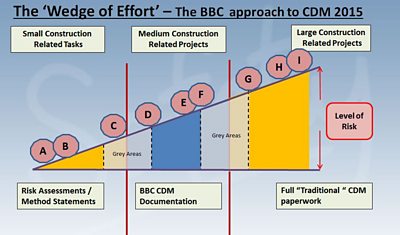
Large Construction Related Projects
Examples of large construction related projects would include productions on the scale of DIY SOS "the big build" (G) ���˿��� Drama's, To Walk Invisible (H) and Proms in the Park (I)
All these projects would be considered relatively high risk in terms of construction risk and require thorough planning. DIY SOS could be considered a traditional construction project and therefore would require a traditional CDM approach. This would involve appointing appropriate dutyholders for example Principal Contractors and Principal Designers and the production of a Client Brief, Pre Construction Information, Construction Phase Plan & Safety File.
Example Construction Arrangements from DIY SOS are shown in the Useful Documents Section of this page.
A production like To Walk Invisible poses a slightly different set of challenges as it involves both some elements of traditional construction as well as a large 'set build in a fairly remote location.
Proms in the Park does not fit into the idea of traditional construction, however the construction element of the event would need to be considered as part of the initial business plan. Duty Holders would still need to be appointed and appropriate plans drawn up. These plans would normally form part of the overall event action plan. Further details are provided in the Event Safety Guide.
The application of CDM to these productions is discussed in greater detail in the Large Construction Related Projects document (Useful Documents Section)
Medium Construction Related Projects
Examples of medium construction related projects would include set builds for productions at Roath Lock (D) or other drama village locations, temporary constructions on location for example the Antiques Road Show (E), or the erection of several camera towers for an FA Cup tie on Match of the Day (F)
While these type of productions are relatively small scale and often of a temporary nature, they still carry an element of construction risk and therefore need to be appropriately managed. To assist those who are planning to commission this type of project, the ���˿��� has produced a CDM Planning Sheet template document. This simple document allows the user to document basic project details, detail the work required, list key personnel, highlight any identified health and safety considerations, and clarify any administration details. In terms of the CDM Regulations, this would be considered as the client producing pre construction information. This document should be shared with the contractor (s) and any potential designers involved.
Construction Managers, should use the contents of this document and design information provided by Designers to produce a (Construction Phase) Plan for the project
The application of CDM to all three productions is discussed in greater detail in the Medium Construction Related Projects document (Useful Documents Section)
Small Construction Related Tasks
Small construction related tasks would include areas such as putting together scenery ‘flats’ (C) , changing a door, painting a wall (A) or installing new lighting in a room (B)
Whilst there is a level of construction risk involved with smaller activities, some jobs will literally take a few minutes to complete so it is not practical to put together paperwork that may take longer to produce than the job takes to complete. In these cases a simple safe system of work will suffice. For example putting together scenery or painting a wall may involve some potential work at height, how can this be avoided / done safely? Changing a door may involve some manual handling; installing lighting will involve working with electricity, think how these risks are going to be controlled? Remember CDM is about sensible risk control, not generating paperwork.
The application of CDM to all three productions is discussed in greater detail in the Small Construction Related Tasks document (Useful Documents Section)
'Grey' Areas
There will be occasions when it will not be that obvious as to which of the three categories of construction activities a particular project will fit into. On these occasions it will be down to the production team to decide where on the scale, their project lies and plan accordingly. The higher the potential risk the more planning required. If production teams are unsure as what level of planning is required they should discuss their project with their Safety Advisor or speak to the Central Safety Team
Construction Risk Management - The Golden Rules
Whatever the size of the construction project there are certain common elements that need to be in place to help secure the health and safety of all involved. The Golden Rules;
- The right people and organisations are appointed at the right time.
- Risks are avoided where possible. Where risks cannot be avoided they are evaluated and proportionate control measures are put in place at the source of the risk.
- All involved in the project have the necessary information, instruction, training and supervision to enable them to work safely
- Arrangements exist to ensure that all involved in the project cooperate and communicate with each other and coordinate their work.
- Worker engagement is promoted throughout the project.
- If in any doubt - Ask!
Useful documents
Recommended links
-
-
Guidance on the new CDM Regulations
-
Guidance on applying CDM to the entertainment industry
-
Guidance on duties of the various roles in CDM available as individual .pdf files
-
Questions regarding the application of CDM 2015
Premises and sets topics
-

Sets & Premises safety guide
This Safety Guide collates those of our Safety Guidelines relating to construction activities (on sets or other structures, including under 'CDM') and to the occupation / use of building premises (studios or locations). -
 This site is for ���˿��� Employees or potential future employees only. If you are not a ���˿��� employee or looking for further information regarding ���˿��� Access Services then please click on another page from the menu above, where you can find out more about Remploy.
This site is for ���˿��� Employees or potential future employees only. If you are not a ���˿��� employee or looking for further information regarding ���˿��� Access Services then please click on another page from the menu above, where you can find out more about Remploy. -
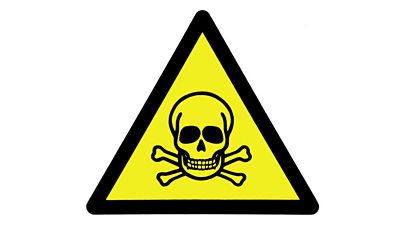
Asbestos Management on ���˿��� premises
This is a summary of the way that asbestos is managed in ���˿��� Buildings. It supplements the information about managing asbestos on productions. -
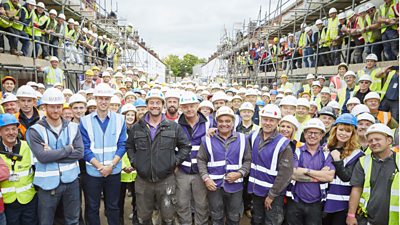
CDM Overview
Legislation to ensure the safe design and construction of structures was updated in April 2015, namely the Construction (Design and Management) Regulations 2015 (CDM 2015) -

CDM 2015 - The ���˿��� Approach
Guidance on the practical application of the Construction (Design and Management) Regulations 2015 across the ���˿��� -
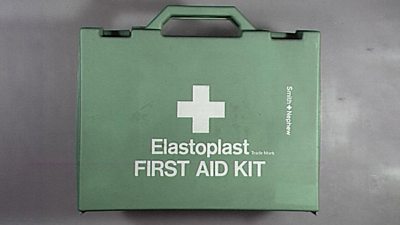
First Aid in ���˿��� Premises
This page describes how first aid is arranged in ���˿��� premises. It supplements the guidance to first aid on productions. It is aimed at people who need to decide what provision to make for first aid on ���˿��� premises. It also provides the arrangements and numbers for contacting ambulances and the National Central Control Room (NCCR). -

Legionella in Premises: Control of
This guidance provides an overview of how water systems are managed in premises to minimise the risks from the Legionella bacteria. -
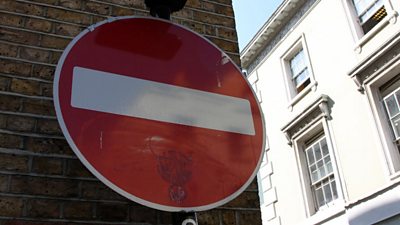
Permit to Work in ���˿��� Buildings (Restricted Work)
Some work in ���˿��� buildings is restricted and you have to get permission, called a Permit To Work (PtW) to do it. -
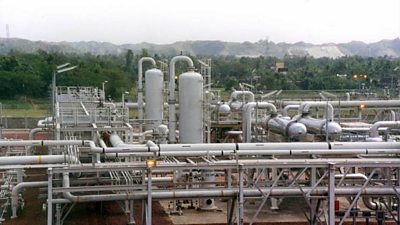
Pressure Systems
A guide to pressure systems in buildings. Pressure Systems include all plant/systems that contain a ‘relevant fluid’, defined as steam or gas under pressure and liquids under pressure which become gases upon release to the atmosphere, at a pressure greater than 0.5 bar (about 7psi) above atmospheric (except for steam). Around the ���˿��� there are heating, fuel transfer, compressed gas and hydraulic systems used in program production, studios (e.g. Camera Peds), office and maintenance facilities. -
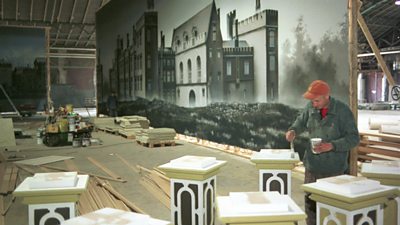
Sets: Safety of
This Safety Guideline is concerned with the construction and use of production sets and associated scenery used in studios and on locations.
More from SSR
-
Your platform to record accidents, risk assessments, assurance monitoring and inspections
-
Safety Equipment Stores
Just one number to call: 020 3614 5155 -
���˿��� Safety Guidelines
An A-Z of ���˿���'s Health and Safety Guidelines -
Safety Advice Line: 0370 411 0464 Email: safety@bbc.co.uk
- A-Z of ���˿��� Safety Guidelines
- Accident Reporting and Investigation
- ���˿��� Health & Safety Policy
- Contractors (incl. vetted lists)
- Contributors
- Fire Safety
- Freelancers
- Independent Production Companies
- Risk Assessment
- Safety Alerts
- Safety Responsibilities
- Safety Training
- Sets & Premises Safety Guide
Events guidance - key links:
- Exhibitions
- General Guidance
- Indoor Location Recce Checklist
- Outdoor Location Recce Checklist
- Major Incidents & Emergency Planning
- Marketing and Promotional
- Noise Exposure
- Planning and Management
- Responsibilities
- Responsibilities Form
- Laser Lighting Effects
- Strobe Lighting
- Temporary Stages and Rostra
Health topics - key links:
- (���˿��� network only)
- Contributors Fitness to Participate
- Display Screen Equipment (DSE)
- (���˿��� network only)
- First Aid and Welfare on Location
- International Travel - Risks & Health
- Manual Handling
- Mental Health: ���˿���page
- (���˿��� network only)
- Personal Health and Wellbeing
- Pregnancy
- Psychological Trauma Support & Trauma Risk Management (TRiM)
- Tiredness and Fatigue
- Travel Health Contacts
���˿��� High Risk - key links:
- CBRN and Industrial Spills
- Covert Filming
- Crisis Management and Security Support
- Demonstrations, Protests and Crowds
- Disaster Coverage
- Door Stepping
- (���˿��� network only)
- (���˿��� network only)
- Public Order
- Safety Equipment Stores
���˿��� Journalism - key links:
���˿��� Productions - key links:
- Aerial Filming and Airfields
- Animals: Displaying and handling for performance
- Boats: Working on
- Children and Young People
- Driving
- Electrical Equipment and Systems
- First Aid and Welfare on Location
- Food Safety (Cooking and Catering)
- Remote Location Working
- Roads and Streets: Working by
- Security of Productions on Location
- Stunts
- Tiredness and Fatigue
- Unmanned Aerial Systems (UAS aka Drones)
- Vehicles: Recording in, from and around
- Working at Height: Mobile Elevating Work Platforms
- Working at Height: Tower Scaffolds
���˿��� Radio - key links:
- (���˿��� Network only)
���˿��� Security - key links:
���˿��� Sport - key links:
About this site
This site describes what the ���˿��� does in relation to managing its health, safety and security risks and is intended for those who work directly for the ���˿���.
It is not intended to provide instruction or guidance on how third parties should manage their risks. The ���˿��� cannot be held liable for how this information is interpreted or used by third parties, nor provide any assurance that adopting it would provide any measure of legal compliance. More information
Some links on this site are only accessible when connected to the ���˿��� network